Among tons of promising sequels that came out in Winter 2021, Kemono Jihen is, without a doubt, the dark horse. Dark, not only in its fame and premises that are being overshadowed, but also in its plot and story that twists the audience around its bloody, red hand-gloves.
Initially not under my radar at all, I step into watching this show with no clue whatsoever it is about, and it ended up leaving me impressed with the grotesque yet thrilling adventure of the protagonists against the relentless demons, warm my heart with a genuine portrayal of friendship that exceeds ‘protect to protect’ values, and really just blew my expectation away.
In a society where demons of different races and classes exist unbeknownst to the human, it’s up to a detective office cooperating with the higher-up in police officials to keep the boundary between two kinds clear, and visible. One of the main characters, a child with high regenerative skill and enormous brute strength is recruited into the detective team from outskirt.
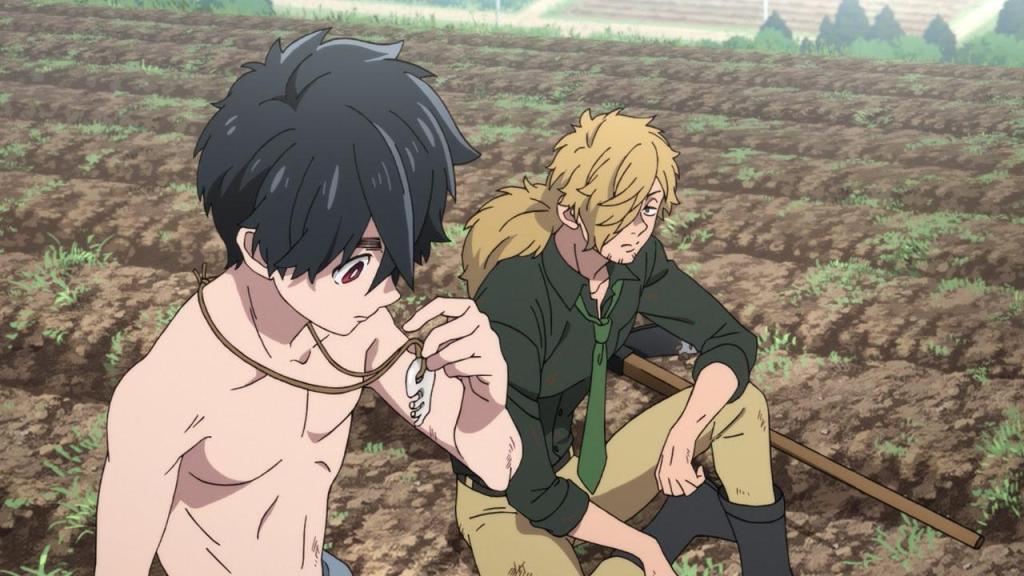
But, there’s a catch: he doesn’t know love, and is emotionless.
As the plot progresses, ensemble characters with different talents, and most importantly, captivatingly dark background stories intertwine together. It’s almost like a celebration of a cluster of broken demons, yet with human emotions, that are brought together for a chance to live—regardless of the numbing pain that are yet to be unfolded, or lingering truth that are to be discovered. They are there, to simply be a part of the society and play their roles whenever cases call for it.
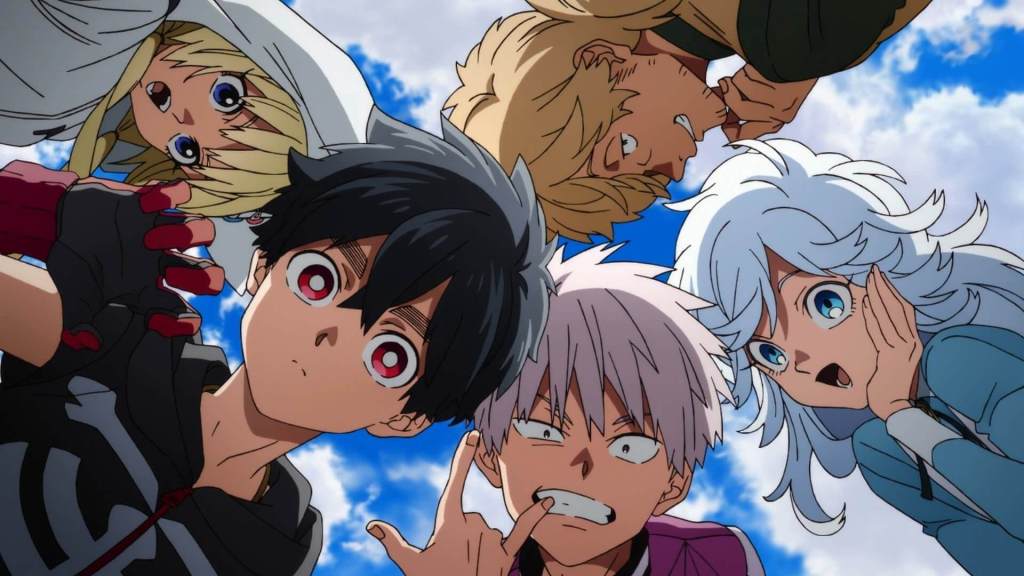
On the surface, the trio’s (sometimes, quartet) childish-like interaction and casual exchange of worries and concerns made up the comedy part. It’s refreshing and it provides this slice-of-life vibe that adds into their everyday life. Not only that, but it forges their relationship and our attachment to them—almost like this is just another SoL anime centering a group of kids having fun.
But, there’s a strange formula in the relationship that entangle them. It’s not ‘tomo-tachi’ (friends) given the perilous and critical nature of their work, but it’s ‘nakama’ (comrades) that added much depth to their bond. Rather than friendship, it’s camaraderie to them: they appreciate and enjoy each other’s company. It’s not in the words, but in their action, which is a really captivating portrayal that I think the author is trying to indirectly bring out.
Because unlike the usual shounen protagonist, when one of them is in pinch, they do not shout or fill themselves with flashbacks to fuel their power and become temporarily invincible.
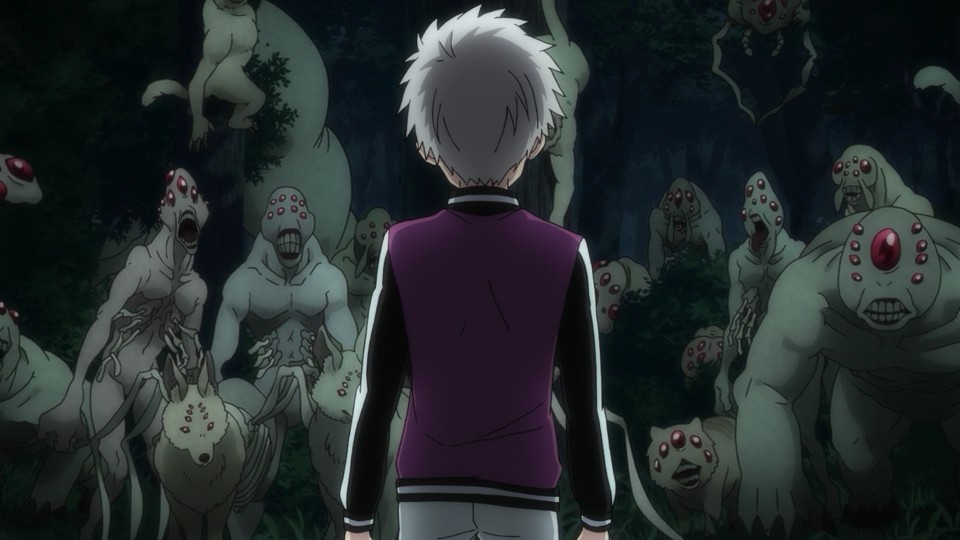
They cry.
Like a little child; because, in many senses, they are.
Not because of how powerless they are, but because of how devastating things they have experienced: they cannot shoulder the whole responsibility and burden that the world dropped on them by themselves.
And this is where the depiction of comrades, where they would rely on each other, comes in through the perspective of the emotionless main character, Kabane. It is precisely because he sees thing objectively—evil as evil, good as good—that he can evoke the best in his comrades, that they know how frustrating it is to be powerless and how powerful feelings, emotions are. And, as he learns more about the meaning of empathy, with love in its many shapes and forms with his comrades, I believe the story will reach much greater heights than what were depicted.
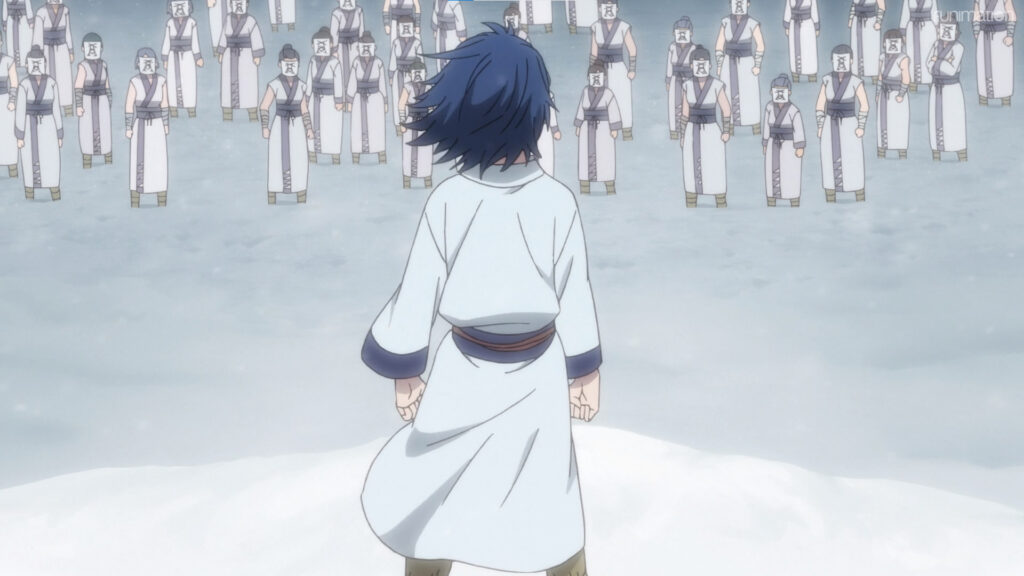
Because one by one, their stories that are not just rooted from tragedy, but most importantly, revolve around the extent of love—no matter how admirable, or horrible it can be—are subtly portrayed and presented to the audience. And as the chilling and uncomfortable tales come in waves, just how prepare one can be, and to what extent to embrace them?
It’s a question that never occured to me until it hit me.
We can’t.

The darkness that revolves around the theme of love in its story is untouchable, unfathomable. That’s what makes it intriguing, that’s what makes it horrifying. Because beneath the fluid and colorful fighting sequences and the creepy, thrilling piano notes, there’s always hidden danger, surprises bursting to take the spotlight.
And, there’s always a wide range of emotions at play.
When the protagonists are face-to-faced with the merciless demons, while the music tempo is giving off a blood-pumping, hopeful, evil-hero-like vibe, a blend of rage and suspense is created. Rage, for the monstrous behaviors of the villains (that stands in grey area between evil and kindness); suspense, for the uncertainty of triump of the main protagonists. This is the duality inside its fights that makes the protagonist worth rooting for; and it is what, I think, seperates the antagonists in this show from the villains that just wanted to destroy the worlds.
It feels more personal… and it’s brilliantly executed.
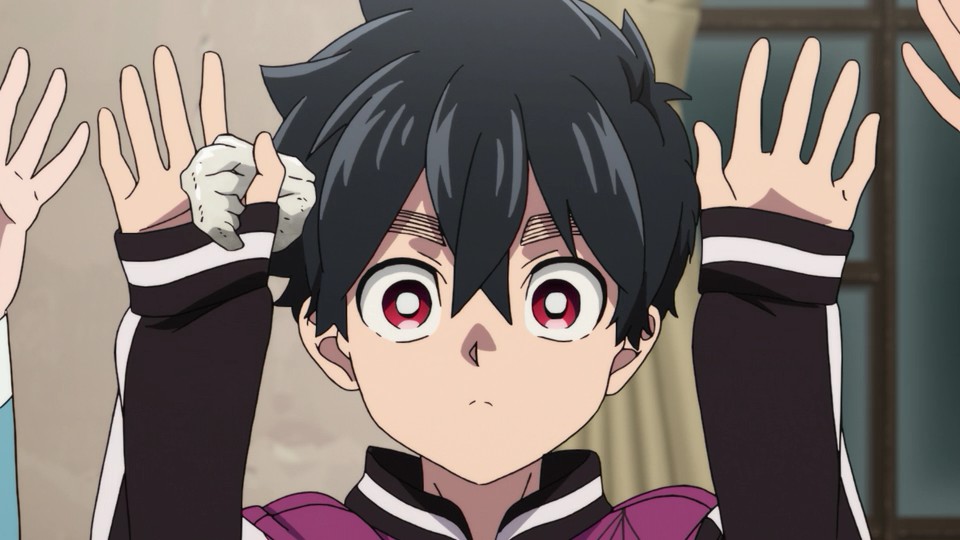
Overall, Kemono Jihen is a show that wraps its hidden dark elements, and stories inside layers of pure, and genuine bond of reliance that the protagonists share, exhibiting their fragile, yet unyielding determination and emotions. It can get really, really dark sometimes, yet at the same time, you couldn’t help but to crave for more of their heartfelt moments.
So, if you’re into exploring some supernatural stories of demons through the eyes of young protagonists, I’d definitely recommend Kemono Jihen. Beware though, as it could shock and traumatize your senses, then warm and melt your heart when you least expected it.

